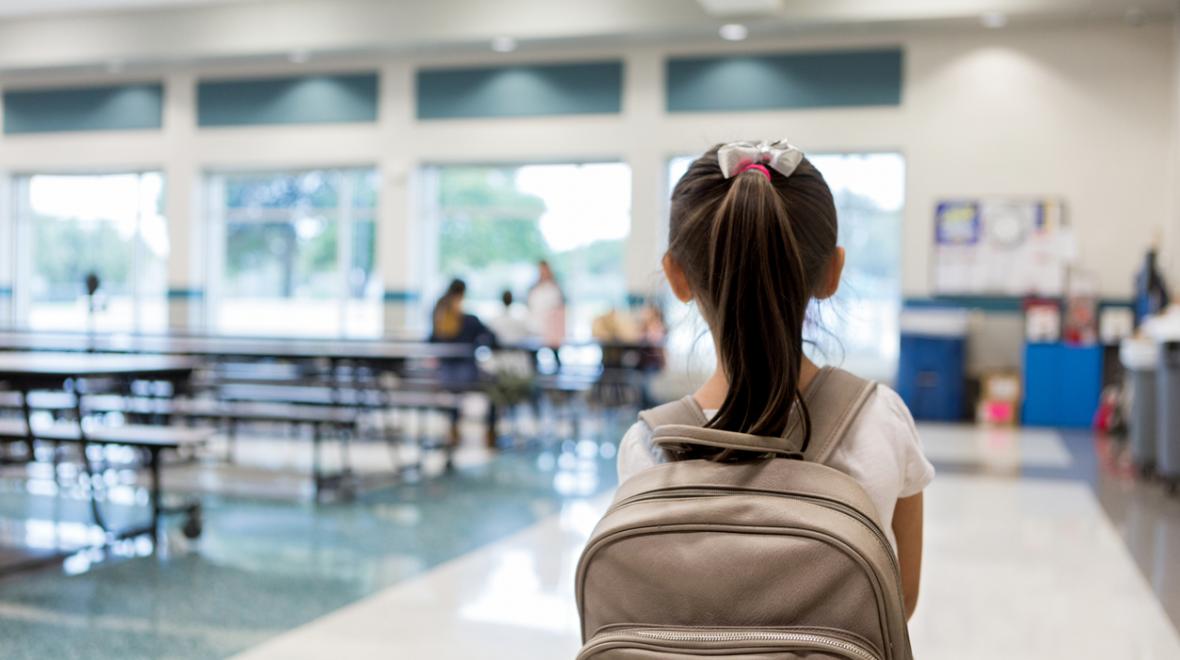
Here’s the question heard near and far: “Is my child going to have mental health problems when they return to the typical demands of in-person school?” The twin question is, “How can I help?” And here is the big myth we’ve been using to reassure distressed students — “Don’t worry, honey. Everyone is going through the same thing!” No, they aren’t.
While everyone is stressed in one way or another by COVID-19-related disruptions, students who struggled with academic, social and emotional problems before the pandemic are reeling from the stress they are experiencing now. And many of the ones who were just getting by in the “before times” have slipped into the danger zones of depression, anxiety and suicidal behavior over the past year.
For perspective, even before COVID-19 hit us like a bomb, as many as 1 in 6 children had a diagnosed mental, behavioral or developmental disorder. Generally speaking, most students suffered from some degree of stress from pandemic isolation, learning obstacles and grief, but understandably, the impact was magnified for students of color, those living in poverty, or others who were disproportionately affected by the novel coronavirus.
In the spring of 2020, we psychologists noted an interesting initial trend in how students responded to the school shutdown. Highly motivated students on the fast track to competitive college launches and ambitious athletic goals were devastated by the disjunction in their lives. While a little break from the tsunami of stress associated with driven lifestyles was welcome, being thrown “off course” was very threatening for these straight-arrow students. In stark contrast, students who were in the midst of emotional crises and school difficulties — such as learning disabilities, social problems or school disconnectedness — were relieved to escape the scene of much of their misery.
Early on, when everyone was spinning from the shock of the worldwide pandemic, kids struggling with school problems felt a kinship with their peers — everyone was freaked out about the same saber-tooth tiger in the brain — a killer pandemic that had no end in sight! The added “bonus” was that those struggling students also got to escape the school stressors that plagued them even before COVID-19.
To be sure, pre-pandemic struggling students went on to be very stressed by virtual or hybrid school experiences last year, but parents and teachers cut students a lot of slack. With in-person school as the norm this fall, struggling students are back to facing their original psychological challenges. Worries abound. They worry about getting sick, their lack of friends, grades, appearance and how they are perceived by just about everyone in their school setting. Plus, teachers feel a need to move on from “low-bar” academic expectations, which deprive students of their educational needs. The pressures are real!
Mental health crises can happen to anyone, whether the source is genetic vulnerability, trauma, psychosocial stressors or a combination. Academic ability doesn’t ensure a smooth transition back to school, because when stress soars into the upper ranges for whatever reason, the thinking brain goes offline — the neural circuitry in the prefrontal cortex simply doesn’t work optimally for complex problem-solving, judgment, memory and emotional control. With extreme stress, you can be a genius and still flunk tests, become completely incoherent and experience an emotional meltdown. Imagine what students experience when they have panicky thoughts like “I’m a loser and nobody likes me,” “I’ve gained a ton of weight and everyone will notice!” and “I’ve lost so much academic ground over the past year that I can never catch up!”
The parent factor
When parents become pervaded with their children’s distress, their physiological arousal gets ramped up, which then gets reabsorbed by their children — and round and round stress goes in a process called “circular anxiety.” The reason I chose the title “Getting to Calm” for two of my books is that parents can’t help their kids if they are as overwhelmed by anxiety as their child is.
News during this past year about skyrocketing rates of child and teen anxiety, depression and suicidal behavior have accentuated parental concerns about their children’s mental health. Parents don’t just twizzle up in their anxiety from the emotional contagion of listening to their kids’ panic — they absorb it from everywhere, including their friends, peers and the news. Aren’t we all talking about the overwhelming stress of isolation, lost dreams, setbacks in academics and uncertainties about the future?
The National Association of School Psychologists did a really smart thing. They recommended that schools hold off on school-wide screenings of mental health to give students time to adjust and programs a chance to help.
October has always been a big month for us in the mental health field — our Adolescent Clinic at the University of Washington, where I worked for 20 years, busted at the seams with referrals every year around then. While some students relax into academic routines and rise to the challenges, some sink and need intervention.
We need to remember that surveys of parents and students about high levels of stress are different than epidemiological studies of mental disorders. We are all stressed, but we aren’t all suffering from mental illness (although stress potentiates the latter). There is less of a taboo with respect to talking about psychological symptoms, especially with the universality of pandemic stress. But given the negative impact of stress contagion on the home front, parents need to be as concerned about magnifying stress effects as being insensitive to what children are experiencing.
What parents can do
By now, parents have read a lot about resilience. I use an acronym, MENSSSA, to list the factors that support resilience and the healthy development of children when they face trauma and stressful events:
- Mindfulness (These are practices that reduce stress, the physiological arousal which activates the sympathetic nervous system. Anxiety occurs when you get stuck in the extreme range.)
- Exercise
- Nutrition
- Secure attachment
- Sleep hygiene
- Social connectedness
- Academic support
Put this all together, and you’ll note that it takes organization, routine and initiative to make all this happen, and those assets usually reflect a certain amount of privilege to pull it off. Mental health programs at schools are increasingly including mindfulness training, cognitive behavioral programs and counseling to help students counteract the impact of pandemic stress and psychological problems, but again, this may depend on your lucky ZIP code.
Let’s go deeper into the “what to do” with meltdowns about school anxiety or despair. The goal is to validate your child’s suffering, and after this hefty dose of empathy, convey your faith that they can meet the challenge. The emphasis is on the first part, because if you rush to say, “But I think you can handle it,” it can come off as dismissive.
Validate the misery of their experience with statements like “When anyone gets triggered, it’s like your brain is registering a life-threatening experience. It’s horrible to feel this way!” or “It makes sense that you’d want to avoid school since you are overwhelmed by so many awful fears and extremely negative feelings.” Note that you aren’t agreeing with their extreme thoughts — you are appreciating that thoughts and feelings about peer rejection, failure and not cutting it at school are hurtful.
Still, you can pull off a “Both/And” approach by conveying an unwavering conviction that school is the best place for children and that your child can face fears and have positive experiences there. Beyond academics, kids benefit from interacting with peers and adults all day and developing their emotional and social intelligence. School experiences teach self-control, because blurting things out, or being dominating or impatient do not result in peer acceptance and successful social relations, whereas kindness, generosity and cooperation do.
Parents can do what mental health programs, counselors and even online therapists do: Offer little nuggets of cognitive behavioral therapy (CBT), which challenges distorted thoughts to modulate arousal and open up opportunities for functional behavior. CBT’s core tenet is to “check the facts.” Inform your child that: Thoughts aren’t facts; stress ratchets up false alarms of terrifying beliefs; repeating negative distorted thoughts creates anxiety; and a brain on fire with stress can’t think accurately or learn. The brain needs to calm down and cool off to do fancy stuff like make friends, do math and deal with challenges.
If school feels like a tiger instead of a cat, wouldn’t you avoid it? By calming the brain with validation, love and accurate thinking, people can perceive cats as cats, and not tigers.
Here are some examples, best constructed together with your child, in inquiry style and written on a whiteboard for best review — because sticky and obsessive fears have a way of recurring.
Distorted thoughts: |
Accurate thoughts: |
|---|---|
|
“I’m a loser and nobody likes me.” |
“I have two friends and I can make more at school.” |
|
“I’ve gained a ton of weight and everyone will notice.” |
“I have great style that my friends like — a lot!” |
|
“I’ve lost so much academic ground that I can never catch up.” |
“The brain is like a muscle. If I strength-train it with math and writing exercises, I will catch up.” |
The examples above illustrate some of the classic thought distortions created by soaring stress and fear:
- All or nothing thinking (the implicit error of absolutes: “nobody, always, everyone, never”)
- Emotional reasoning (“I feel it, so it must be true.”)
- Future forecasting (predictions of negative outcomes when none of us knows the future)
- Mental filter (negative appraisals, while leaving out positive evidence that supports the contrary)
- Catastrophizing (fearing the worst positive scenario)
Will your child or teen cooperate with such an exercise? I confess that it’s ambitious. Don’t we hire out specialized learning to teachers, driving instructors and tennis coaches? Teens are already overloaded by parental socializing agenda — chores, manners, rules, limits, etc. They are supposed to be declaring independence from the ruling structure called parents! Not to mention the fact that pandemic cabin fever resulted in kids experiencing parents as irritating pests more than ever.
I get it. After all, I’ve been seeing teens and families in therapy for decades. I can “challenge distorted thoughts” with teens in ways that parents could never pull off without arousing protest and opposition. However, when distressed kids are in the “heart to heart” mode with their parents, it is surprising what can transpire. They may balk, but absorb some of the wisdom. I can’t count the number of times teens have told me they feel compelled to be snide and nasty to their parents, but secretly they are listening. And still other times, the love tones of music actually do come through, while the words — not so much. But loving moments can soothe as much as correcting extreme thoughts.
School has always been a mixed bag
Like most big experiences — families, marriage and life in general — school is a mixed bag. Because of fears, students can anticipate the worst and forget the best (that old “mental filter”). Even kids who struggle with mental health problems or school challenges experience joy, fun and pleasure in learning on occasion. But due to the nature of suffering, parents may only hear about difficulties. Make sure to check in with teachers and school counselors. Not only are they are excellent resources for mental health support, but they can inform you of some of your student’s successes and moments of satisfaction. After all, parents also need to “check the facts.” Our worry brains can get stuck and need accuracy adjustments, too.











